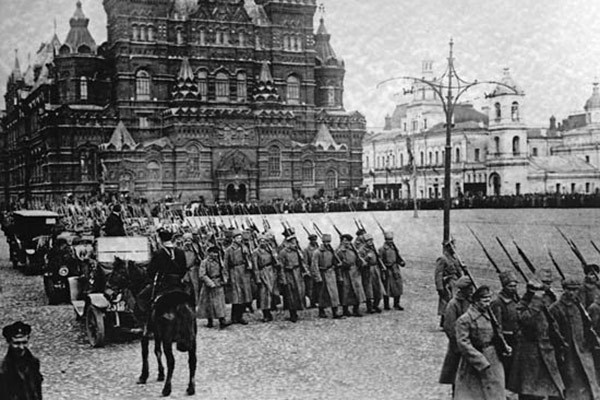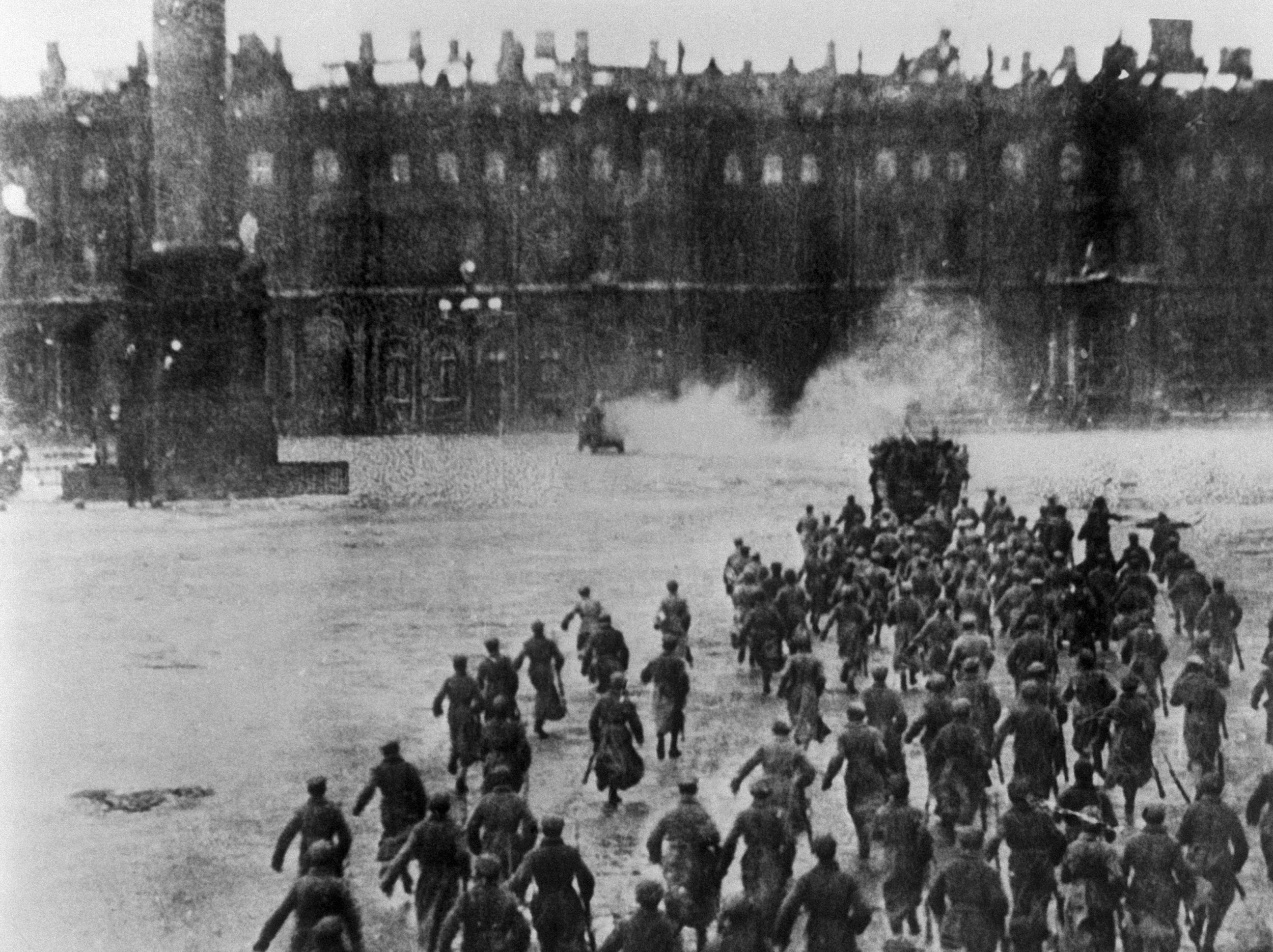
A one-day armed mutiny/coup attempt has shaken up how the world views Russian power. The leader of Russia's convict-mercenary group Wagner sent his troops and tanks racing toward Moscow this weekend after alleging Russian military attacked his forces inside Ukraine. Authorities in Moscow now appear desperate to project calm and normalcy after what some historians are calling the most serious threat to the Kremlin since the failed August coup of 1991. Rewind: Russia watchers and online sleuths scrambled to verify details of Yevgeny Prigozhin's allegations of fratricide by the Russian military, delivered in a video posted to Telegram on Friday. After all, the mercenary leader is no stranger to controversy and embellishment—having created, e.g., the agency responsible for much of Russia's meddling in the 2016 U.S. election with the work of his Internet Research Agency. But before open-source researchers analyzed much of his footage, Prigozhin and his men had crossed back into Russia from Ukraine and purportedly seized control of the city of Rostov-on-Don—racing to Moscow to punish Defense Minister Sergei Shoigu and top general Valery Gerasimov.
Rewind: Russia watchers and online sleuths scrambled to verify details of Yevgeny Prigozhin's allegations of fratricide by the Russian military, delivered in a video posted to Telegram on Friday. After all, the mercenary leader is no stranger to controversy and embellishment—having created, e.g., the agency responsible for much of Russia's meddling in the 2016 U.S. election with the work of his Internet Research Agency. But before open-source researchers analyzed much of his footage, Prigozhin and his men had crossed back into Russia from Ukraine and purportedly seized control of the city of Rostov-on-Don—racing to Moscow to punish Defense Minister Sergei Shoigu and top general Valery Gerasimov.
Perhaps most notably for Shoigu and Gerasimov, no one in Russia's military stopped the Wagner convoys as they rolled through Rostov-on-Don and northward to Russia's capital, seeming to catch the Kremlin unprepared. By this time, Russia's FSB intelligence agency said it "launched a criminal case over [Prigozhin's] calls for an armed uprising," and demanded a stop to what it called "unlawful actions." And Wagner troops do not seem to have believed they were bluffing as they marched to the capital city.
 One particularly startling detail: Wagner fighters reportedly shot down six Russian helicopters and even a plane that had been sent to stop them advancing to Moscow. Officials reportedly dug up portions of roads and placed obstacles in the path of Wagner's tanks, which plowed right over many of them. Troops were staged outside of Moscow, too, in anticipation of some sort of violent confrontation. The city's mayor declared Monday a day off from work for residents around the city.
One particularly startling detail: Wagner fighters reportedly shot down six Russian helicopters and even a plane that had been sent to stop them advancing to Moscow. Officials reportedly dug up portions of roads and placed obstacles in the path of Wagner's tanks, which plowed right over many of them. Troops were staged outside of Moscow, too, in anticipation of some sort of violent confrontation. The city's mayor declared Monday a day off from work for residents around the city.
And the man supposed to be in charge? A tense-looking Vladimir Putin released his own video message on Saturday, referencing Russia's revolution in 1917 and calling Wagner's sprint to the capital a "criminal adventure," a "serious crime," and "an armed rebellion." Shortly afterward, the leader of Belarus announced a surprise truce to ease tensions. That alleged deal brokered by Alexander Lukashenko allows Wagner's leader and some of his men to exile in neighboring Belarus and face no criminal prosecution in Russia. It also supposedly requires other Wagner mercenaries to become regular Russian Army soldiers. And so almost as quickly as it seemed to begin, it was all over.
Shortly afterward, the leader of Belarus announced a surprise truce to ease tensions. That alleged deal brokered by Alexander Lukashenko allows Wagner's leader and some of his men to exile in neighboring Belarus and face no criminal prosecution in Russia. It also supposedly requires other Wagner mercenaries to become regular Russian Army soldiers. And so almost as quickly as it seemed to begin, it was all over.
Russian authorities shared video Monday allegedly showing Defense Minister Shoigu in public looking like a defense minister—e.g., seated in a plane as another official points out a window. There was no audio to the video, and no details to know for certain any of it was filmed after the Prigozhin mutiny.
By the way: U.S. intelligence officials were anticipating something from Prigozhin going back to at least June 10, according to the Washington Post, when the Russian military ordered all volunteer units in Ukraine to sign contracts with the government.
Expert reax: "Often there are plots without a coup; this seemed like a coup without a plot," wrote Yale historian Tim Snyder on Sunday. Looking to the future, Snyder observed during Wagner's brief takeover of the Russian city of Rostov-on-Don, "The [residents' apparent] apathy indicates that most Russians at this point just take for granted that they will be ruled by the gangster with the most guns, and will just go on with their daily lives regardless of who that gangster happens to be."
There are many considerations from this "baby coup" worth pondering in the days ahead. Indeed, most major news outlets published their own variations on that theme by Sunday (see, e.g., the Associated Press, Reuters, the New York Times, the Wall Street Journal, the BBC, and others). Snyder shared several of his own lingering questions, drawn from a largely political science perspective, including:
"If Wagner was so horrible, why did everyone just let it go forward?"
"If the Russian ministry of defense is so effective, why did it do so little?"
"If Putin is in charge, why did he run away, and leave even the negotiating to Lukashenko of Belarus?"
And, "If Lukashenko is the hero of the story, what does that say about Putin?" Read the rest of Snyder's much longer 10-point "lessons from a mutiny" over on Substack, here.
A second opinion: Jack Watling of the London-based Royal United Services Institute agrees with Snyder's take on a demoralized military, writing Monday, "It is apt that Putin referenced the events of 1917 in his denunciation of Wagner's actions. It is important to reflect on the extent to which the deterioration of the Russian Army in 1917 saw numerous mutinies, negotiations and fragmentation within the Russian command. The collapse in 1917 started at the front and it took months to develop."
If Ukraine can continue to advance and take back occupied territory, Watling argues, Russian troops may be further demoralized, which could further rot the entire military structure over the coming months.




No comments:
Post a Comment
Note: Only a member of this blog may post a comment.